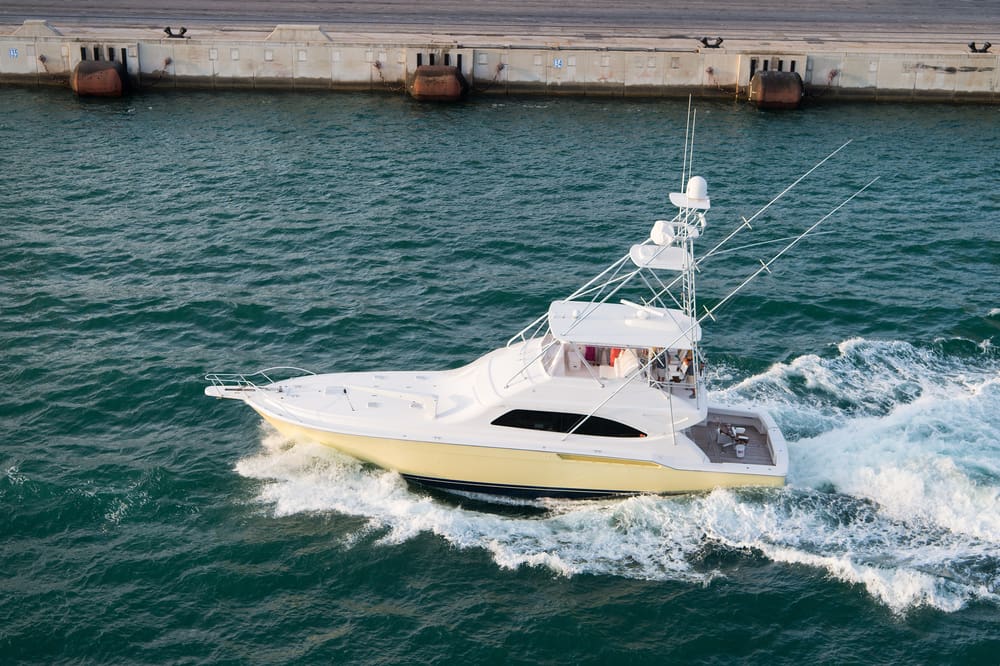As a boat owner, there are many things your vessel can’t do without. Life jackets and anchors, for example, are necessary. But have you given any consideration to procuring a Bill of Sale? Even if you plan on never selling your boat, having a US Coast Guard Bill of Sale can be beneficial. Unfortunately, getting a Bill of Sale can be a rather frustrating and drawn-out process if you don’t know where to begin.
Let’s demystify this a little bit.
What is the Coast Guard Bill of Sale?
Whenever a boat is not registered with the state but with the US Coast Guard, the Bill of Sale serves as the documentation that lists all the important details, including the registration and title number. The Bill of Sale is essential in places where selling a boat doesn’t require a sales tax or titling. In those cases, the Bill of Sale is the only evidence of the transaction that you have. Buying a second-hand boat often means receiving this document in exchange for the check. You then submit this document to the Coast Guard to be recorded as the rightful owner of the vessel.
Benefits of Having a Coast Guard Bill of Sale
There are a couple of reasons why you want to get your boat registered with the Coast Guard as soon as possible. The USCG Bill of Sale has many uses, especially for those who are selling their boat. This mainly means tax documentation. A Bill of Sale provides details about the true owner of the ship, as well as important ID numbers. If you ever find yourself dealing with boat-related tax issues, a Bill of Sale can often clear those right up. After all, you didn’t purchase a yacht so you could be bogged down by tax problems.
When selling a boat, you may find that people are enticed by the Bill of Sale. Since the documentation makes their life and yours easier, having one for a used boat makes it much more appealing. You could potentially sell your boat faster by registering your vessel with the Coast Guard and getting the forms.
There is one instance where you may not receive a Bill of Sale: when you have purchased a new vessel or had a ship custom-made for you. In that case, you will need to get the appropriate application and fill out everything on your own.
How to Create a USCG Bill of Sale
There is no standard form for the Bill of Sale, as every transaction is different. It is up to you, the seller, to ensure the bill is created correctly.
Here is what you need to know: Each state has its own regulations about what needs to be put on the Bill of Sale. Therefore, you should check with your state laws to see what is required. Since the Bill of Sale is proof of ownership in most cases, all the information on the document must be accurate. You also need the Bill of Sale to be correct since the Coast Guard will use the information for the federal registry.
Financial lenders do require you to register the boat and have a Bill of Sale—another reason to get this squared away ASAP.
As mentioned earlier, if you are purchasing a documented boat from someone else, you need to receive the US Coast Guard Bill of Sale directly from the previous owner. Since they have already registered the boat, you don’t have to do it; but they must provide you with the document. The Bill of Sale that comes from the Coast Guard is called CG-1340. Should you plan on selling the boat to someone else in the future, you have to fill out all the information and pass it on to the new owner.
If you are using a template from another service, make sure there are spaces for buyer and seller information, the hull identification number, as well as the make and model of the vessel. The price paid, date of the sale and signatures (notarized) must also be included.
Receiving a Certificate of Documentation
If your recreational boat is over 5 net tons, upon turning in the Bill of Sale and registering with the Coast Guard, you will receive the Certificate of Documentation (COD). Though optional for recreational boats (mandatory for commercial vessels), this is another piece of paper to keep on your boat whenever you hit the water. The USCG COD establishes the nationality and ownership of your vessel. Depending on what COD you applied for, you may have to renew it once a year or every five years.
Let Us Help You Find The Boat of Your Dreams
Purchasing a boat often has many steps involved, from financing to obtaining all the correct documentation. A Bill of Sale can make things easier, but it can also be confusing to get. Let Yacht Brokers of Annapolis help! We will walk you through the entire boat buying or selling process, including all the necessary and optional documentation. Give us a call or contact us today to learn how we can help you along your boating journey.





